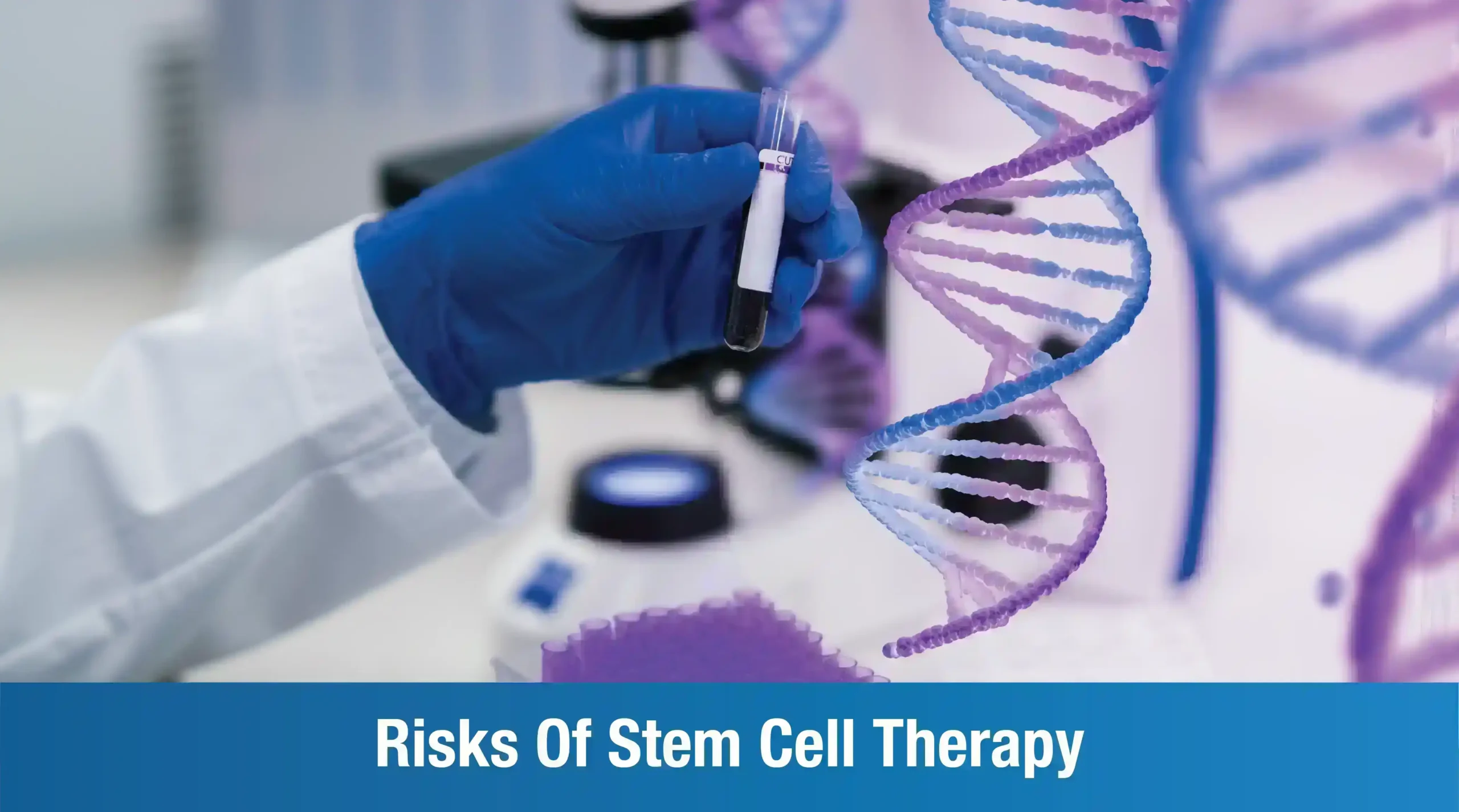
Side-effects of Cell therapy
Don’t we all read the side-effects of any medication or therapy we may have been prescribed for a particular illness or disease? Whether it’s a common cold, or a more serious condition like a neurological disorder, as patients (and caregivers) we do our own homework!
And while the internet is rife with information about Cell therapy, who better than Plexus, India’s foremost Cell therapy centre, to set the record straight.
In this article, we’ll take you through the risks involved in Cell therapy. However, we’d also like to point out that the benefits of Cell therapy far outweigh its side-effects!
What are regenerative cells?
Cells are the very basis of every tissue and organ in our body. All other cell types are generated from regenarative cells. These newly generated cells may have functions different from the parent cells.
Read more about regenerative cells here.
What is Cell therapy?
Cell therapy repairs and/or restores function of injured, diseased, and/or dysfunctional tissue by injecting Cells (or their derivatives) into the body.
Cells are derived from the human body, and through a laboratory procedure (differentiation) they are grown to form other cells. These daughter cells are then injected into the patient’s body. This process is called Cell transplantation.
Cells remind the body of its self-healing abilities, also known as neuroprotection. Besides their ability to self-renew, Cells are also capable of immunomodulation and secreting growth factors. Research indicates that the latter characteristic of Cells are proof of their ability to regrow/regenerate entire organs that have been damaged or deteriorated by illness.
Who can benefit from Cell therapy?
Cell therapy can help provide relief from pain, manage disease-related symptoms, slow down the progression of degenerative diseases, and even regrow damaged/dead tissues. It can help patients suffering from:
- Neurological disorders
- Trauma-induced conditions
- Inflammatory conditions
- Orthopedic conditions
- Hematopoietic diseases
- Autoimmune diseases
- Cardiovascular illnesses
- Gastrointestinal disorders
- Metabolic disorders
- Organ disorders
- Ocular disorders
- Skin disorders
- Cancers
Risks and side-effects
Cell therapy is still in its nascent stages of acceptance. Although considerable research suggests the efficacy of Cell therapy, reticence and hesitation on the part of medical professionals and patients, has relegated the regenerative therapy to a secondary option.
Like with any therapy program, there are risks associated with Cell therapy. But these are not life-threatening side-effects. They are short-term, and generally mild. Some of the most common side-effects of Cell therapy that may last for a few hours post the injection in rare cases include:
- Nausea
- Dizziness
- Headaches
- Fatigue
- Low-grade fever
- Pain at the injection site, this can be accompanied by:
- Swelling
- Bruising
- Tingling
- Numbness
- Infection (very rare)
Cell therapy at Plexus
Plexus is India’s first ISO-certified Cell research centre. We use autologous mesenchymal Cells derived from the patient’s body. Plexus offers regenerative rehabilitation programmes for the following disorders:
- Cerebral Palsy
- Parkinson’s
- MND
- Multiple Sclerosis
- Spinocerebellar Ataxia
- Spinal Cord Injury
- Stroke
- Brachial Plexus Injury
Cell therapy at Plexus is a safe and non-surgical procedure with a speedy recovery rate. It also has the following advantages:
- Helps in symptoms management
- Enhances quality of life
- Improves everyday functionality
- Prevents/slows down further nerve damage
- Reduces inflammation
- Improves immune function
- Fosters brain development
So, you see. The pros of Cell therapy outweigh the cons considerably, making it a safe, viable, and hassle-free medical option.
Additionally, Plexus also offers physiotherapy, occupational therapy, speech and language therapy, cognitive rehabilitation therapy, behaviour therapy, swallowing therapy, and more.
If you wish to know more about our regenerative rehabilitation programmes or any of our other services, reach out to us today.
Call +91 89048 42087 | 080-2546 0886
080-2547 0886 | 080-2549 0886
FAQs
Do Cells become cancerous?
Research shows that only Embryonic Cells have a chance of becoming cancerous.
How long do Cells live for?
Your body’s Cells can live as long as you do.
Can regenerative cells damage the body?
Regenerative cells are progenitor cells, meaning they are cells that are found in our body. Since they are a part of our body, they cannot cause any long-term damage.
Can regenerative cells fail?
Yes, regenerative cells can fail if donor cells are used without following appropriate methods and techniques. Autologous Cell therapy involves Cells procured from the patient’s body itself. This eliminates the risk of rejection completely.










